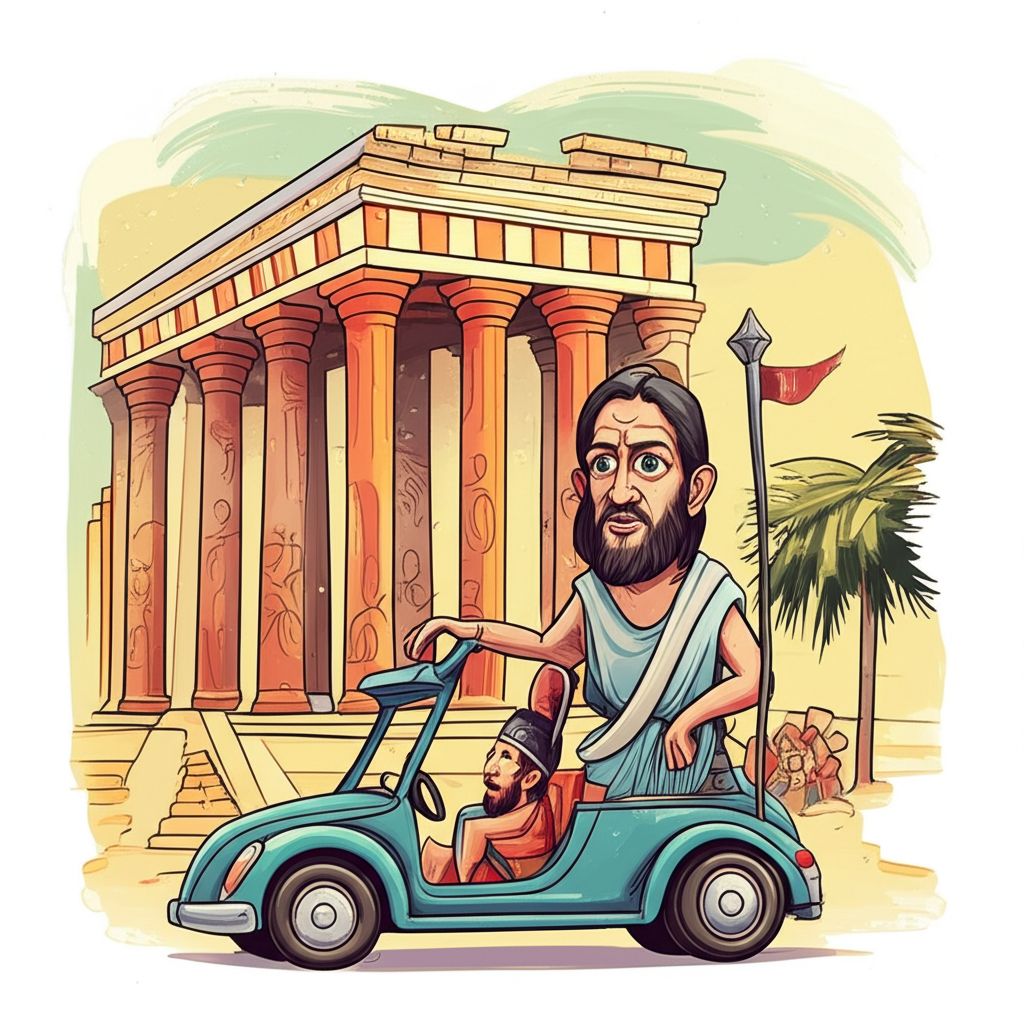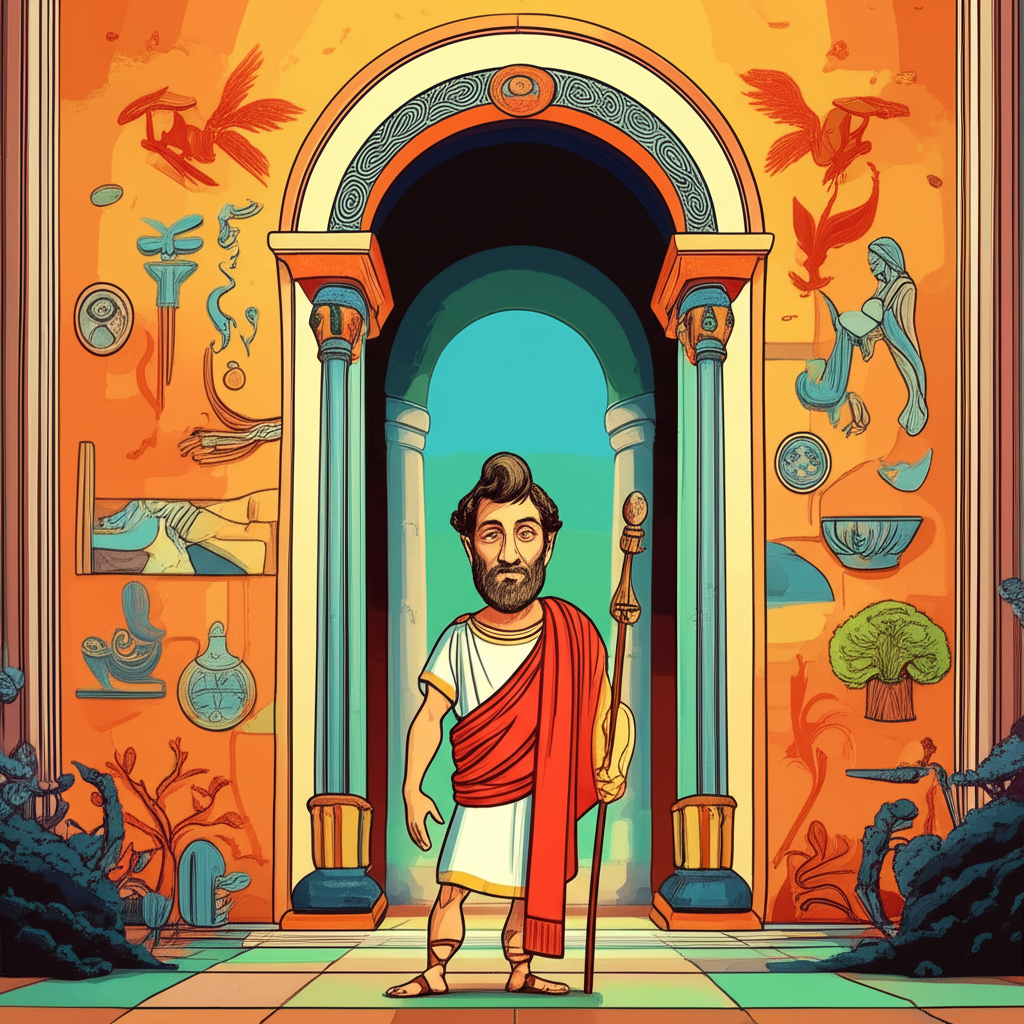The ancient world, particularly the sun-drenched lands surrounding the Aegean Sea, was a tapestry woven with tales of gods, heroes, and extraordinary feats. Among these, the legends of Heracles, the mightiest of mortal heroes, resonated deeply within the cultural consciousness of ancient Greece. His life, a relentless cycle of divine penance and colossal exertion, was inextricably linked to the pronouncements of oracles, none more revered than the Oracle of Delphi. This is not a chronicle of divine intervention, but a narrative exploration of a traditional story, a product of ancient imagination, reflecting the worldviews and anxieties of a bygone era.
The cultural milieu in which these stories flourished was one where the natural world was often imbued with divine agency. Ancient Greeks, living amidst dramatic landscapes of mountains and seas, saw the forces of nature – storms, earthquakes, the fertility of the land – as manifestations of powerful, often capricious, deities. Their understanding of the cosmos was anthropomorphic; gods and goddesses possessed human-like emotions, desires, and rivalries, influencing the lives of mortals in profound ways. Fate, a concept often personified, played a significant role, and the pronouncements of oracles, believed to be intermediaries with the divine, were seen as glimpses into this predetermined path. The Oracle at Delphi, situated on the slopes of Mount Parnassus, was the most prestigious of these prophetic sites, its pronouncements sought by kings, generals, and heroes alike.
Heracles himself is a figure of immense symbolic weight. Often depicted as a colossal man of unshakeable strength, his primary attribute is the lion skin he wears, a testament to his first labor – the slaying of the Nemean Lion. His mace, a simple yet effective weapon, further emphasizes his raw physical power. Beyond brute force, Heracles embodies a complex ideal. He is a demigod, born of Zeus and a mortal woman, Alcmene, thus straddling the realms of the divine and the human. This dual nature often placed him in situations of conflict, both internal and external. He represents the struggle against insurmountable odds, the triumph of perseverance over adversity, and the concept of atonement for transgressions, real or perceived. His labors, imposed upon him by the envious King Eurystheus, were not merely tests of strength but symbolic confrontations with the chaotic forces of the world and the darker aspects of human nature.
The myth of Heracles is inextricably linked to the Oracle of Delphi, particularly in its early stages. Driven to madness by the wrath of Hera, Zeus’s jealous wife, Heracles slew his own wife and children. Utterly devastated and seeking to atone for this horrific act, he journeyed to Delphi to seek absolution and guidance. It was at Delphi that the Pythia, the priestess of Apollo, acting as the oracle’s mouthpiece, delivered the divine decree: Heracles was to serve King Eurystheus and perform twelve impossible tasks, the Twelve Labors. These tasks, ranging from cleaning the Augean stables to capturing the Erymanthian Boar, were designed to be both punishing and potentially fatal.
The aftermath of Delphi, therefore, is not a single event but a perpetual state of being for Heracles. The oracle’s pronouncement was the catalyst for his legendary quest, and its shadow, the weight of his penance, never truly lifted. Each labor completed brought a temporary reprieve, a step closer to redemption, but the memory of his devastating act and the divine imperative remained. The oracle’s words were a constant reminder of his past and the arduous path laid out before him. The act of consulting the oracle itself, a profound act of seeking external validation and direction, speaks to the ancient belief in a predetermined fate that mortals could, at best, try to navigate. The pronouncements were often cryptic, requiring interpretation, and Heracles, despite his strength, was often left to grapple with the ambiguity of the divine will.
The symbolism embedded within the story of Heracles and the Oracle of Delphi is rich and multifaceted. The Oracle itself, as a sacred site, represented a nexus of divine communication and a perceived pathway to understanding the will of the gods. For the ancient Greeks, it embodied wisdom, destiny, and the often-unseen forces that shaped their lives. Heracles’ submission to the oracle’s decree, despite his immense power, highlighted the human condition of facing forces beyond one’s control. His labors can be interpreted as symbolic confrontations with the chaotic elements of nature – the poisonous Lernean Hydra representing untamed wilderness, the Augean Stables symbolizing the need for purification and order. His eventual triumph, though often hard-won and fraught with suffering, offered a powerful narrative of resilience, the capacity for redemption, and the potential for even the most grievous of errors to be overcome through diligent effort and divine, or at least divinely ordained, purpose.
In the modern world, the legend of Heracles continues to captivate imaginations. His story, stripped of its literal divine context, is now primarily understood as a powerful metaphor for human struggle and achievement. He appears in countless literary adaptations, from epic poems to modern novels, where his trials are reinterpreted through contemporary lenses, exploring themes of psychological fortitude, the burden of responsibility, and the search for meaning. In the realm of visual media, Heracles has been a recurring figure in films and television series, often portrayed as a valiant hero battling mythical beasts or confronting personal demons. Video games frequently draw inspiration from his labors, allowing players to experience his superhuman strength and epic quests. In academic circles, scholars of mythology and classical literature analyze the Heracles cycle as a significant cultural artifact, revealing insights into ancient Greek values, societal anxieties, and their sophisticated storytelling traditions.
In conclusion, the story of Heracles and the aftermath of Delphi is a profound piece of cultural heritage, a testament to the enduring power of human imagination and the art of storytelling. It is crucial to reiterate that this is a traditional narrative, a product of ancient beliefs and worldviews, and not a matter of contemporary faith or practice. As Muslims, we firmly believe that only Allah, the Almighty, is the true Creator and Sustainer of the universe, and that all power and guidance originate from Him alone. The myths of ancient peoples, while fascinating for their cultural and historical significance, do not alter this fundamental truth. The enduring appeal of Heracles lies not in any perceived divine authority, but in the universal themes he embodies: the struggle against adversity, the pursuit of redemption, and the indomitable spirit of perseverance that continues to resonate across the ages, enriching our understanding of the diverse ways in which humanity has sought to make sense of its existence.




